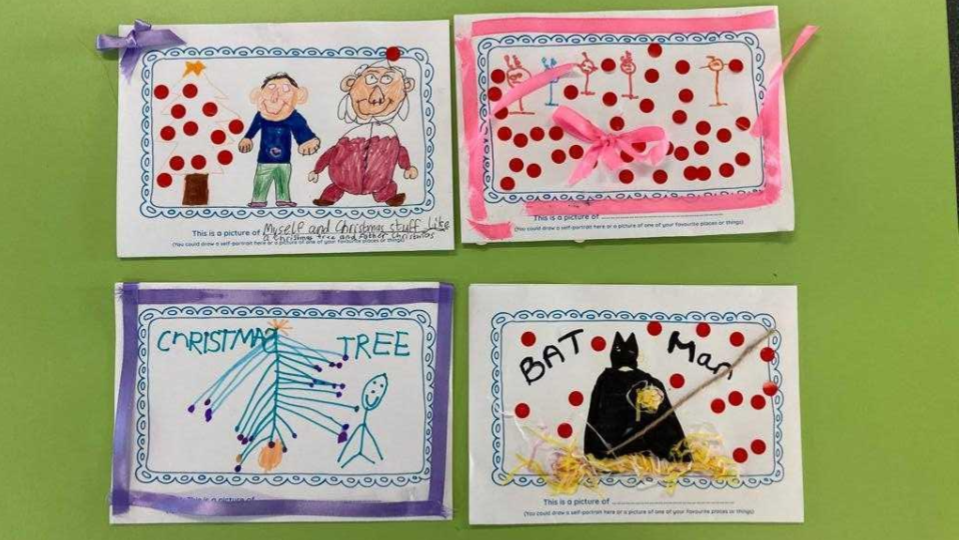One of our core values at InCommon is that we include everyone - we work hard to make sure that everyone can take part in our intergenerational activities.
Recently we’ve been exploring how we can further develop this across our programmes, and how inclusivity is fused into the nature of bringing different generations together. Too often older people can face barriers to participating in their communities, and children miss out on opportunities to learn in an out-of-the classroom environment. Creating spaces for everyone, of every age and ability, to take part as much as they can is at the heart of intergenerational work, and drives what we do at InCommon.
Over the summer, we did a redesign of our Connect and Social Action programmes and put accessibility at the forefront of our planning. Taking a proactive approach and co-designing with our older participants and teachers helps us to shape intergenerational workshops that are dyslexia friendly, dementia friendly and easier to process for all.
Lately we’ve been learning more about dementia and are proud to be Dementia Friends! Dementia Friends is an Alzheimer's society initiative that aims to transform the way the nation thinks, acts and talks about the condition so that people living with dementia can continue to live in the way they want.
At InCommon, we want to support our diverse community of older participants and that starts with changing the way we think and discuss conditions like dementia. Through the Dementia Friends training, we learned about the ways we can better accommodate those living with the condition. We’re using this learning to inform conversations with our younger programme participants and to shape our programme material, such as creating more activities that don’t involve memory recall or using less writing-based resources.
In our Social Action programme, we’re running Dementia Friends training sessions with Health and Social Care students from Langdon Park Secondary School. Our goal is to raise greater awareness and understanding of the condition amongst young people and then put this into practice when they visit the residents of Aspen Court, a care home in Poplar that offers nursing and dementia care. If you would like to become a Dementia Friends ambassador, or register your organisation to join Dementia Friends, you can find out how on their website here.
Alongside this, we have started a new intergenerational project in Purley, South London. We’re working with the brilliant children at St Nicholas, a primary school that caters for pupils with a wide range of special educational needs. We’ve matched them with St Saviour’s Court, an independent living scheme for older people just a 10 minute walk away from the school.
Our team visited St Nicholas to run a creative card making session with the children. After consulting with staff at the school, we adapted our session activities to ensure every child could feel comfortable and enjoy the time we spent together. We also drew inspiration from other organisations leading in this space, like Twinkl, for resource ideas tailored to best support children with SEND.
We started our session by asking the children to introduce themselves and to show us a movement that best represented their names. It was great to have a range of movements, from clapping the syllables in their names to expressing their name in a dance move. The children then made cards for the older residents of St Saviour’s Court to invite them to our first intergenerational workshop. Below are some of the brilliant cards created by the children.
We’re looking forward to our intergenerational workshop with St Nicholas and St Saviour’s Court in December where we’ll incorporate movement, singing and crafting into our group activities to ensure everyone can take part and have fun.
We’re really enjoying deepening our learning around inclusivity and reflecting on this as a team to incorporate into our practice. As an organisation, it helps us to continue creating accessible, welcoming environments for all of our programme participants. Beyond this, it ensures that intergenerational work continues to fulfil its aims of creating spaces for everyone that promote greater understanding, mutual respect and build more age friendly communities.


